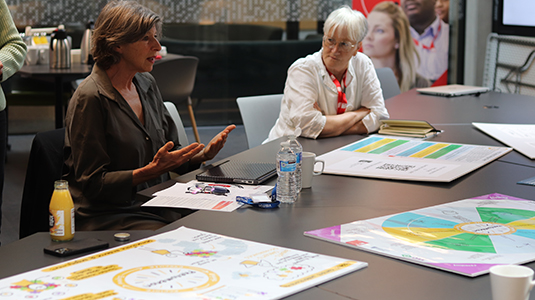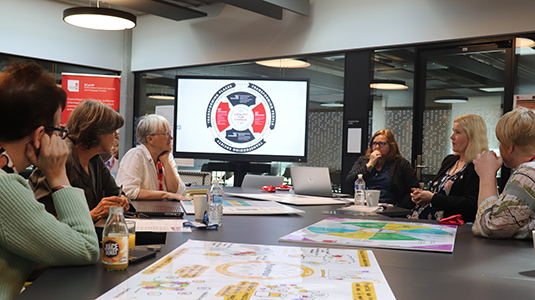19 June 2024
Evidencing educational gain with phenomenon-based learning

Author
Staffordshire Centre of Learning and Pedagogic Practice (SCoLPP)
The 2022 call for Collaborative Enhancement Project (CEP) proposals lit a pedagogic fire for the SCoLPP team with a project to examine Phenomenon-based Learning (PhBL). The CEP provided a chance to collaborate with colleagues from Harper Adams to produce an educators’ PhBL toolkit inspired by student-led debates on 6 critical questions about PhBL.
In this blog post we boldly admit that the project created lots more questions for us about PhBL, from its yet to be established educational gains to the implications of embedding PhBL within the context of HE. Not shy of a challenge, the SCoLPP team are now building onto the foundations of that collaborative project and seeking to evidence the impact of this promising pedagogy.
The CEP Foundation - Questions that produced more questions
Drawing on global sources of evidence, including Universities of the Future, in 2023 we tested the potential of Phenomenon-based Learning (PhBL) - with its facilitative and investigative character - to implement SDG4.7 effectively1. With PhBL, discipline knowledge and expertise are viewed within the context of a phenomenon rather than artificially lifted, segregated into blocks, or placed into topics (Wolff, L-A.,2022). The approach endorses learning in real-time at a pace and sequence that is appropriate for the learner and the phenomenon under investigation.
We interrogated PhBL through student co-production models at 2 contrasting higher education providers and developed an evidence-informed educator’s toolkit for PhBL which supports practical and critical understanding of this future-facing learning approach. Reflecting on the students’ engagement in the series of facilitated PhBL episodes, students were drawing down subject content to contribute to understanding the phenomena. Furthermore, students reported that the inquiry-based approach was influencing the ways in which they engaged in their core studies, after the project had finished. We knew that we were onto something when we received unsolicited feedback such as: “we couldn’t stop discussing the phenomenon” or “I have become a pain in my other modules, always asking questions”.
Persuasive, yes, but with PhBL advocating a renegotiation of the ways in which learners and educators interact with knowledge, we need compelling evidence of educational gain. We are now moving from the conceptualizing PhBL stage achieved from the Collaborative Enhancement Project to adopting an evaluative lens. We are seeking to identify and quantify the value of PhBL to enhancing student experience and outcomes via elements such as learner engagement, discipline identity, criticality, and metacognition. As part of this evidencing journey, we reached out to PhBL trailblazers.


With a little help from our friends - Learning from International Scholars
In early June we welcomed 2 PhBL scholars to Staffordshire University to participate in a programme of strategic discovery, sharing of practice and contribution of experience:
- Prof Kirsti Lonka is the Director of Research Group of Educational Psychology, University of Helsinki and has provided leadership to global educational initiatives.
- Prof Donna Fields is a language expert and has spearheaded international educational programmes integrating agentic methodologies which development empowerment.
The irony that we were creating a PhBL blueprint via a PhBL process wasn’t lost on us! Over the duration of their visit, we had the chance to critically consider the parameters of educational gain and the appropriate variables of impact that we can apply to PhBL as we build an evidence base. The international scholars shared research expertise, strategic knowledge, and a welcome dose of pragmatism. And we would like to share this with you………
So, we are extremely excited to announce that Prof Lonka and Prof Fields will be providing keynote addresses at our international online PhBL conference in November 2024: “It’s Scholarly but it’s Real: Using Phenomenon Based Learning to future-proof effective learning in Higher Education”
Please do register for this free event and consider sharing your practice via the call for contributions. Let’s savour the process of questioning educational gain and effectiveness of future-facing pedagogies such as PhBL (even if we end up having more questions than we started with!).
1SDG4.7 is a capacity-building goal emphasizing the need to develop individuals with the skills to deliver the sustainable development outcomes.